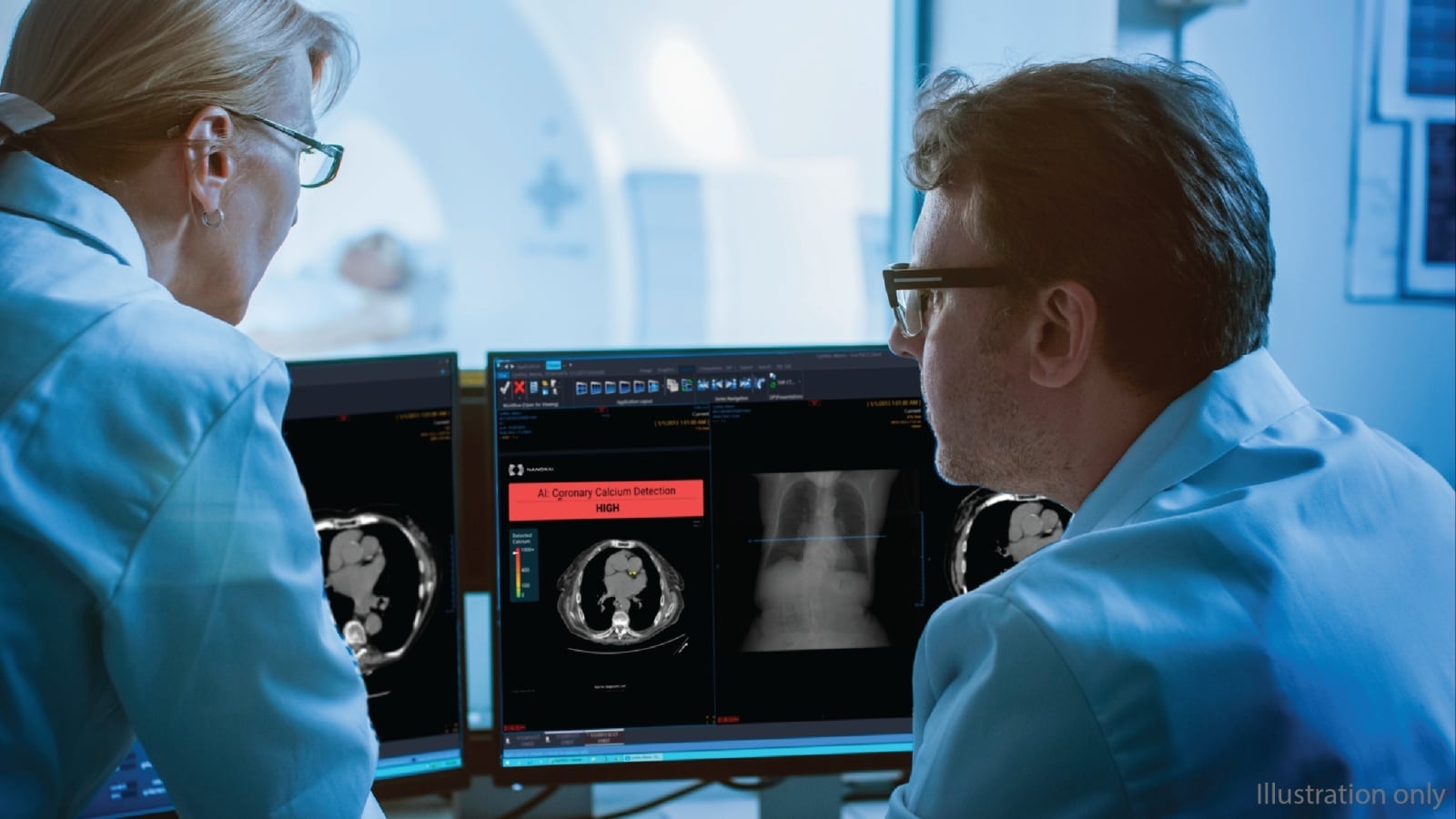Almost six out of 10 patients undergoing routine CT chest scans at an Israeli hospital were found to have a significant buildup of deposits that can narrow the arteries.
An expert who jointly led the study described the findings as “staggering” but said he was encouraged by the ability of artificial intelligence (AI) to identify at-risk patients.
AI developed by Israel-based Nanox was used to analyze medical imaging data from 326 patients at Beilinson Hospital, in Petah Tikva. They were all being treated for non-cardiac health issues.
Nanox found that 31 percent had severe coronary artery calcium (CAC), which clogs vessels that supply the heart muscle with oxygen and nutrients. CAC is a red flag for future coronary events.
Their CAC levels were so high that they were referred to specialized preventive cardiology clinics for in-depth evaluation and treatment.
Another 27% had moderate levels and 42% had low levels. They were referred to primary care physicians.
“While the study’s findings were staggering, we are encouraged by the important role AI can play in early risk identification and prevention of cardiovascular events,” said Dr. Ran Kornowski, chief of cardiology at Beilinson.
CAC is the strongest predictor of future problems such as heart attack, stroke, cardiac arrest or angina. Calcium can combine with fat and cholesterol to form a build-up of plaque that can narrow or block the arteries.
Nanox develops AI algorithms that can detect chronic or acute diseases before the patient suffers any symptoms.
It takes data from a chest scan performed for non-cardiac reasons – lung cancer, pneumonia, trauma, infections or pre-surgical planning, for example- – and provides an accurate measure of CAC.
“The patients in this study received routine CT scans that had nothing to do with a cardiac concern,” said Kornowski.
“Nanox’s AI technology can enable physicians to route these unsuspecting individuals with high CAC levels to the appropriate care pathways and treatment.”
Prof. Ashraf Hamdan, who jointly led the study as head of cardiovascular imaging at Beilinson, said: “Even within our health-conscious population, we were able to identify a significant number of individuals with hidden cardiovascular disease and guide them onto the appropriate care trajectory.”
He said that using Nanox’s HealthCCSng software had been “highly promising in terms of detecting previously undiagnosed patients with elevated calcium levels from routine chest CT scans.”
Assessing CAC levels in a routine chest scan avoids the extra expense (and radiation exposure) associated with an additional scan.
It also means cardiac issues are detected earlier and patients can be treated accordingly to prevent future cardiovascular events.
Dr. Orit Wimpfheimer, Chief Medical Officer at Nanox, said: “Given the global prominence of cardiovascular disease as the leading cause of mortality and the fact that nearly half of patients realize their condition only after an initial heart attack, leveraging such technologies for general population screening and early detection is absolutely imperative.”















